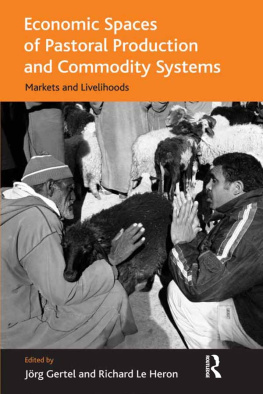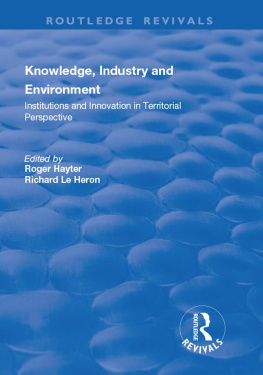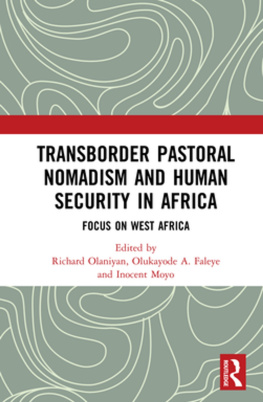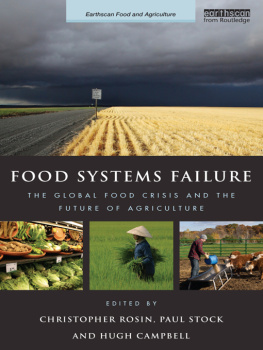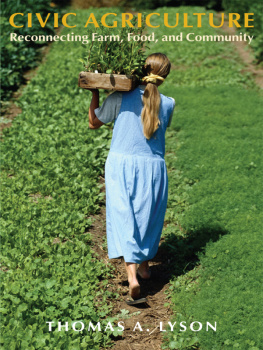Acknowledgements
Stability, gentlemen, is the one thing we cant deal with (in Krebs, A.V. The Corporate Reapers, 1992, 305) this statement by a trader at the Chicago Board of Trade can easily be applied to nomadic peoples and to the pastoralists alike. But in contrast to traders who handle foreign commodities and foreign money, pastoral livelihoods are directly involved, affected and exposed to changing environments and risks. Flexibility and mobility is inscribed in their livelihoods and their relation to markets, particularly since sedentary knowledge systems increasingly prescribe human-nature relations.
This book originates from discussions at the Universities of Leipzig and Halle-Wittenberg about the interrelations between mobile and settled people that started with the inception of the Collaborative Research Centre Difference and Integration in 2001 (Sonderforschungsbereich 586, www.nomadsed.de ). As part of a series of colloquia and workshops, the conference on Pastoralists and the World Market: Problems and Perspectives in Leipzig in April 2006 prompted the focus on markets and livelihoods as inextricably linked everyday realities. For funding this project, and for offering the possibility to progress our research over a lengthy period, we thank the German Research Foundation (DFG) for its financial support.
As editors we wish to thank our respective institutions for actively supporting agri-food research and scholarship over many years. We discovered our mutual interests in pastoralism in 2003 when Jrg was a visitor at the then School of Geography and Environmental Science, the University of Auckland. This was further cemented through Richards participation in the 2006 conference and Jrgs revisits to Auckland and New Zealand in 2009 and 2010. We both owe much to research stimulation that springs from our involvement in the Australasian Agri-Food Network and its annual conferences and the collegiality and intellectual exchange that characterises the New Zealand Marsden funded Biological Economies: Knowing and making new rural value relations project (2010-2013).
A number of people played key roles in ensuring the completion of the book. We are grateful to Katy Crossan and Carolyn Court at Ashgate for shepherding the project along and assisting us with queries. We thank Sonja Ganseforth from the University of Leipzig for her valuable suggestions that helped get the book project started. Igor Drecki from the School of Environment at the University of Auckland handled all our wishes and aspirations for visualisation with great care and admirable patience. He professionally crafted the figures in the book. As the book neared completion Marie-Christine Hakenberg from the University of Leipzig spent long hours in skilfully editing and meticulously checking the text and figures. We are indebted to the dedication of Erena Le Heron from the School of Environment at the Auckland University for her invaluable input as an external referee on the argument of all chapters, her critical overview of the book as it evolved, her insistence on clarity of style and meaning, and her attention to detail on every aspect of the book. We also thank the Ashgate reviewers for their initial incitements regarding the emphasis of the book and for their later encouraging and helpful suggestions.
Finally we would like to express our gratitude to the contributors of this book for their patience and support of our requests throughout the publication process.
Jrg Gertel and Richard Le Heron
14 June 2011
Chapter 1
Introduction: Pastoral Economies Between Resilience and Exposure
Jrg Gertel and Richard Le Heron
This book attempts to interrogate early twenty-first century pastoralism and pastoral economies by putting into tension ideas about markets and livelihoods. As such it is a project in the spirit of recent research and scholarship in economic geography, agri-food and development studies dedicated to producing knowledge on a planetary scale. The book asks three questions that draw on and point to new research imaginaries in a globalising world. The questions are:
What does it mean to try to make a livelihood from pastoralism in different parts of the world?
How are markets implicated in the livelihoods of pastoralists, wherever they are to be found?
How far does or should, livelihood-informed thinking and action that emerges in particular geographic contexts necessarily mean engaging in market-making relations?
Our questions are designed to ground the books enquiry in the remarkably rich resource of field-centred ethnographic research on pastoralism and pastoral economies that is available, and to unsettle the categories of livelihood and markets that form very different points of entry into any research on socio-economic relations. They spring from a growing awareness and concern that across every sphere of economic activity market fundamentalism and triumphalism are sweeping away questions that challenge its market assertions, claims and promises. They are in fact unashamedly questions that prioritise and foreground human concerns of everyday surviving, living and hoping, questions that prompt reflection on the bodily placement of pastoralists as they strive to handle their exposure to multiple influences and seek to create conditions of some stability and resilience. In asking these questions we are forced to examine how situated knowledges about pastoral economies accumulated in different parts of the world might be framed into new and deeper understandings. In this way our open ended questions embrace wider intellectual concerns such as where do markets or livelihood practices come from and how are they performed into existence, by and for whom?
The questions initially began to surface during our dialogue at the April 2006 conference on Pastoralists and the World Market: Problems and Perspectives at the University of Leipzig, Germany. The conference formed part of the major German funded research programmes on Difference and Integration Interdependencies between Nomadic and Sedentary People (SFB 586) and Critical Junctures of Globalisation (GRK 1261). Being able to bring together researchers whose pastoral economy interests spanned much of the globe afforded an unprecedented opportunity to probe issues relating to globalising processes through the lens of territorially distributed empirical and longitudinal studies. The great social and economic thinker, Karl Polanyi, who has influenced many contributing to the book, might have described the conference as a proto-project in comparative economy, given its focus on empirically informing discussion of pastoral economies and positioning them relative to their others. We should add, however, that while our questions may be ambitious, the book is more modest in its aspiration and what it achieves. Our step, in seeking to elucidate new styles of knowing pastoralism and pastoral economies is, we hope, to have used empirics and theorising creatively and differently.
When we began to outline our individual and collectively diverse research trajectories to each other at the conference we soon realised we were doing a global mapping of pastoralism and particular experiences of differing pastoral economies. The research trajectories were more than case studies put in a row. They rather reflected insights from very different situations all over the world. Indeed, the presenters were speaking from and about many contexts, that when considered through the eyes of the German and French academy, have been the focus of ongoing and heavily funded research programmes over many years. The Collaborative Research Centre Difference and Integration at the Universities of Leipzig and Halle (SFB 586, 2001-2012) is focusing, for example, on interdependencies between nomadic and sedentary people, the Max-Planck-Institute for Social Anthropology in Halle is analysing integration and conflict in Asian and African societies, the Maison Mditerranenne des Sciences de lHomme in Aix-en-Provence has a long standing research interest in North African mobilities, and the Collaborative Research Centre Akazia in Bonn (SFB 389, 1996-2008) investigated arid climate, adaptation and cultural innovation in Africa. The experiences recounted all added up to a highly variegated landscape of human experience and knowledge relating to pastoralism and pastoral economies.

